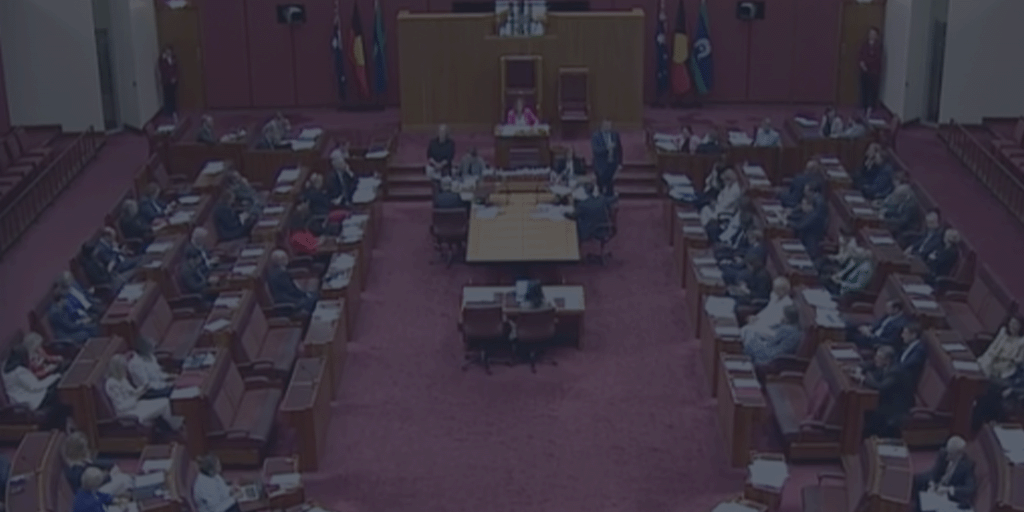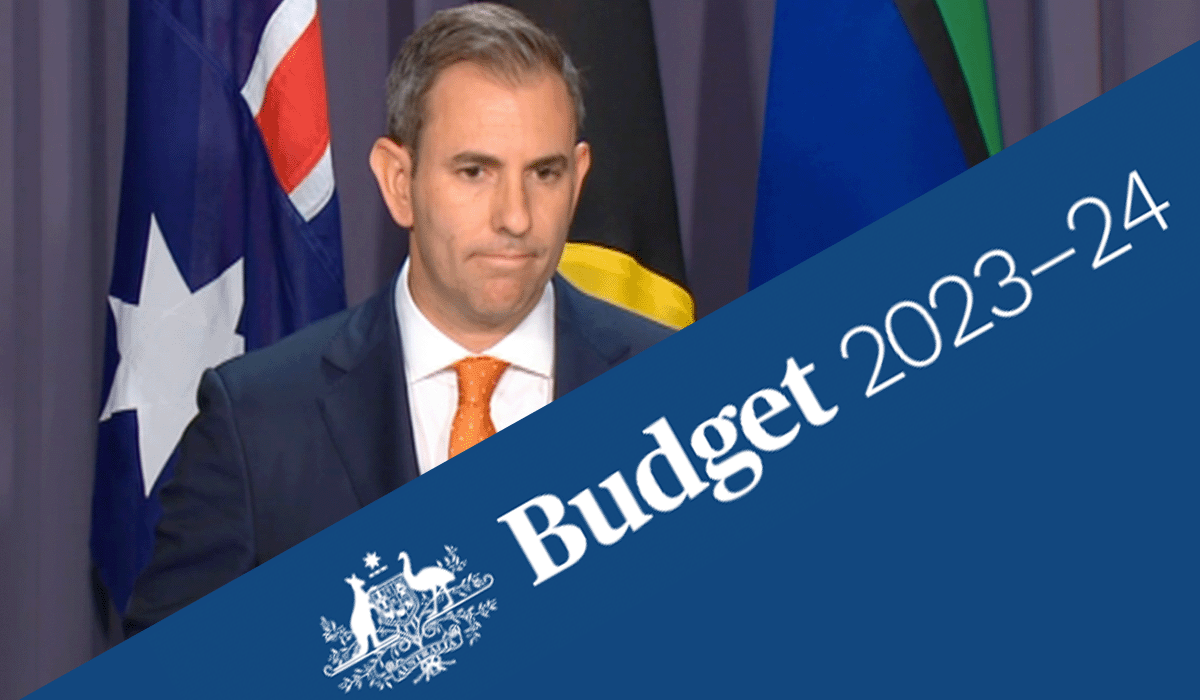What to expect from the new Government
Labor has won the 2022 federal election; Anthony Albanese has been sworn in as Australia’s 31st Prime Minister, Dr Jim Chalmers our Treasurer, and Katy Gallagher the Minister for Finance.
We explore the key policy initiatives impacting on accountants, advisers, and their clients:
Tax
Personal income tax
The 2019-20 Budget announced a series of personal income tax reforms. Stage 3 of those reforms is legislated to commence on 1 July 2024. Stage 3 radically simplifies the tax brackets by collapsing the 32.5% and 37% rates into a single 30% rate for those earning between $45,001 and $200,000. Mr Albanese told Sky News, “People are entitled to have that certainty of the tax cuts that have been legislated… We won’t be changing them. What we want going forward is that certainty.”
Multinationals
Multinationals paying their fair share of tax was a go-to target during the election campaign. The plan for multinationals implements elements of the OECD’s two-pillar framework to reform international taxation rules and ensure Multinational Enterprises (MNEs) are subject to a minimum 15% tax rate from 2023. Australia and 129 other countries and jurisdictions, representing more than 90% of global GDP, are signatories to the framework.
Labor’s multinational policy supports the OECD framework by:
- Limiting debt-related deductions by multinationals at 30% of profits, consistent with the OECD's recommended approach, while maintaining the arm's length test and the worldwide gearing ratio.
- Limiting the ability for multinationals to abuse Australia's tax treaties when holding intellectual property in tax havens from 1 July 2023. A tax deduction would be denied for payments for the use of intellectual property when they are paid to a jurisdiction where they don’t pay sufficient tax.
- Introducing transparency measures including reporting requirements on tax information, beneficial ownership, tax haven exposure and in relation to government tenders.
The reforms will follow consultation and are not anticipated to take effect until 2023.
Financial advisers
On 8 December 2021, the then Shadow Assistant Treasurer and Minister for Financial Services Stephen Jones told the Independently Owned Financial Advisers in Australia dinner:
“Requiring financial planners with years, even decades, of experience to complete a bachelor’s degree or lose their licence doesn’t make sense.”
As such, Labor intends to remove the requirement for financial advisers who have been working in the industry for a decade to complete a bachelor’s degree.
If you’ve been working for a decade as a financial advisor with a good record, a Labor Government will not ask to you take that bachelor’s degree to keep your qualifications… we won’t be asking you to waste your time on degrees you don’t need”
The view was reinforced by Mr Jones at a Stockbrokers and Investment Advisers Association (SIAA) Q&A webinar on 11 May 2022 where he commented “no primary legislation would be needed” and that the change could be made using existing regulatory powers.
The other industry requirements to pass the financial advisers exam, meet CPD requirements, and abide by the Code of Ethics, will remain.
Superannuation
No change to SG rate and rate increase
No change to the legislated superannuation guarantee rate increase. The SG rate will increase to 10.5% on 1 July 2022 and steadily increase by 0.5% each year until it reaches 12% on 1 July 2025.
Accommodating faith-based superannuation funds
Labor has flagged the creation of a separate measure for APRA regulated superannuation funds beyond the Your Future, Your Super Performance Test to allow for faith-based investment at a lower rate of return. At present, MySuper products are ranked according to fees and net returns. Funds that fail the performance test must notify their members, and if they fail two years running, they are unable to accept new members.
Speaking to the ethical investment forum in December 2021, Stephen Jones, then Shadow Assistant Treasurer and Minister for Financial Services, said:
“For entirely understandable reasons, many Australians would like the choice to not invest in certain companies even if those companies are offering high returns… The fact is, sin, for want of a better word, is profitable…. Your Future, Your Super actively discriminates against super funds members’ religious or ethical choices.”
Outside of the policy to allow for faith-based investment, Labor maintains the view that, “super funds must be held accountable for delivering high performance for members.”
Superannuation guarantee on parental leave
In the 2019 election campaign, Labor committed to paying superannuation on Government funded paid parental leave payments. However, when asked about the policy at a media conference Mr Albanese said, “We can't commit to everything that we committed to during the last campaign.” The initiative, along with the proposal to extend paid parental leave from 18 to 26 weeks, is not dead but delayed by economic constraints.
Your Super, Your Future
Back in May 2021, Stephen Jones stated that Your Super, Your Future had “serious flaws”. One of these flaws was the construction of the stapled superannuation rules introduced on 1 November 2021 that require employers to identity if an employee has an existing superannuation fund before setting them up in a default fund. Instead, he advocated for superannuation to “move with the employee from one fund to another when they change jobs.” That is, TFN tagging would move the employee’s superannuation account from one fund to another when they changed jobs if they did not identify a fund of choice.
Retirees and pensioners
Eligibility for Commonwealth Seniors Health Card to widen
Eligibility for the Commonwealth Seniors Health Card will be widened by increasing income eligibility thresholds.
To be eligible for a CSHC, currently adjusted taxable income plus deeming of account-based pensions (unless grandfathered) needs to be below $57,761 for singles of $92,416 for couples. It is proposed that this would increase to $90,000 and $144,000 respectively.
Although the ancillary benefits are not as broad as the pension concession card, a CSHC will provide eligible self-funded retiree clients access to benefits such as:
- Cheaper medicine under the Pharmaceutical Benefits Scheme (PBS). Prescriptions become free to card holders after a safely net of $326.40 for the calendar year has been met.
- Earlier access to the Medicare safety net.
- Bulk billed medical appointments – subject to approval from their doctor.
The policy was originally announced by former Prime Minister Scott Morrison and adopted by the Labor Party.
Freezing deeming rates
Labor has committed to freezing deeming rates, that form part of the income test that determines access to the pension and social security payments, at their current levels for two years.
Employment & wages
The Fair Work Commission will remain the arbiter of wages and wage growth in Australia but legislative amendments will:
- Make gender pay equity a central objective of the workplace relations system.
- Make the “same job, same pay” concept an object of the Fair Work Act. For example, workers employed through labour hire or other employment arrangements such as outsourcing will not receive less pay than workers employed directly.
- Enshrine “secure work” as an objective of the Fair Work Act for gig economy workers. That is, extending the Fair Work Commission’s powers to include “employee-like” forms of work. This will enable the FWC to make orders for minimum standards for new forms of work, such as gig work.
- Create an objective test to determine when a worker can be classified as a casual.
- Limit the use of fixed-term contracts to 24 months overall.
- Strengthen the ability of the FWC to order pay increases in low paid female dominated industries.
- Companies with 250 or more workers will be required to report their gender pay gap publicly.
- Make “Wage Theft” a crime.
In addition, two new expert panels will work with the Fair Work Commission:
- Pay Equity, and
- Care and Community Sector
Climate change
Climate change featured heavily in the election. Labor, through its Powering Australia plan, intends to reduce Australia’s emissions by 43% by 2030 and aligning with a net zero target by 2050 by:
- Upgrading the electricity grid
- Making electric vehicles cheaper with an electric car discount from 1 July 2022 that will exempt all electric cars below the luxury car tax threshold for fuel efficient vehicles ($77,565 in 2020-21) from:
- Import tariffs – a 5% tax on some imported electric cars; and
- Fringe benefits tax – a 47% tax on electric cars that are provided through work for private use.
The policy notes that currently, there are only five electric cars in Australia priced under $60,000 and none under $40,000.
- Investing in a new Driving the Nation Fund to invest in 117 electric vehicle fast charging stations on highways across Australia.
- Adopting the Business Council of Australia’s recommendations for the gradual reduction of emissions by Australia’s largest emitters.
- Ensuring Emissions Intensive Trade Exposed industries will not face a greater constraint than their competitors.
- Allocating up to $3 billion from Labor’s National Reconstruction Fund to invest in green metals (steel, alumina and aluminium); clean energy component manufacturing; hydrogen electrolysers and fuel switching; agricultural methane reduction and waste reduction.
- Providing direct financial support for measures that improve energy efficiency within existing industries and develop new industries in Regional Australia through a new Powering the Regions Fund.
- Rolling out 85 solar banks around Australia to enable more households to benefit from rooftop solar.
- Installing 400 community batteries across the country.
- Reducing the Australian Public Service’s emissions to net zero by 2030.
- Investing in 10,000 New Energy Apprentices and a New Energy Skills Program.
- Establishing a real-world vehicle fuel testing program to inform consumer choice.
Manufacturing
Labor has flagged $15 billion of capital to invest in job-creating projects through loans, equity and guarantees in resources, agriculture, transport, medical science, defence capability, enabling capabilities and renewables and low emissions technologies. Goods made in Australia will receive preferential treatment in Commonwealth contracts.
A part of the push for local manufacturing is a $100 million partnership with the Queensland government to create an Australian Made Battery Precinct as part of Australia’s first National Battery Strategy.
Public sector
In the first year, Labor intends to reduce Commonwealth spending on external labour by 10%, reducing the level of private or external labour costs to approximately $3 billion from the current $5 billion. At the same time, the public sector’s arbitrary average staffing level (ASL) cap will be abolished with an immediate investment in key agencies:
“…an immediate investment in 1,080 frontline service delivery jobs in key agencies, including 200 staff for Services Australia, 500 staff for the Department of Veterans’ Affairs, and 380 staff for the National Disability Insurance Agency.
Will the new Government have its way in the Senate?
40 of the 76 Senate seats faced voters on Saturday. It’s too early to tell what the composition of the Senate will look like, but we know that no one party will hold a majority the Greens will hold a pivotal voting block.
The Greens platform is to “…tax the billionaires & big corporations, and provide the things we all need for a better life: Treaty. Replacing coal and gas with 100% renewables. Dental and mental healthcare covered under Medicare. Wiping student debt and free education for all. Affordable housing. Secure, well paid jobs. An end to all forms of discrimination…”
Share this
You May Also Like
These Related Stories

2025: The year ahead

The Senate’s 'freight train' final sitting of the year



No Comments Yet
Let us know what you think